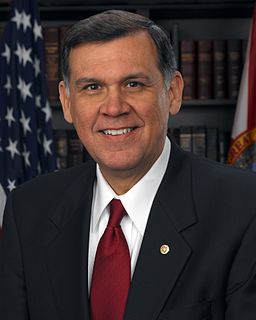A Quote by Thabo Mbeki
I think the critical point, really, is that we need to focus black economic empowerment more on the creation of new wealth rather than on these big deals that have been characteristic of this process in the past, of people going to banks, borrowing a lot of money, buying this and when the shares don't perform very well, the shares go back to the banks, because there's other people who own this anyway. I think we need to re-focus it so that it really does impact on growth, new investment, new employment and a general, better spread of wealth in South Africa.
Quote Topics
Africa
Anyway
Back
Banks
Because
Been
Better
Big
Big Deal
Black
Borrowing
Buying
Characteristic
Creation
Critical
Deals
Does
Economic
Economic Empowerment
Employment
Empowerment
Focus
General
Go
Going
Growth
Impact
In The Past
Investment
Lot
Money
More
Need
New
Other
Own
Past
People
Perform
Point
Process
Rather
Really
Shares
South
South Africa
Spread
Than
Think
Very
Wealth
Well
Related Quotes
People have to pay so much money to the banks that they don't have enough money to buy the goods and services they produce. So there's not much new investment, there's not new employment (except minimum-wage "service" jobs), markets are shrinking, and people are defaulting. So many companies can't pay their banks.
I pay attention to what's going on around me. I'm always looking for new energy, new talent, new voices. When you do that I think it's easier to come up with fresh ideas. It's not that my career has been based on surprising people, but it's been about challenging myself - to constantly do new things that are going to broaden my own mind and in the process, hopefully, connect with other people.
Don´t be unnecessarily burdened by the past. Go on closing the chapters that you have read; there is no need to go back again and again. And never judge anything of the past from the new perspective that is arriving, because the new is new, incomparably new and the old was right in its own context, and the new is right in its own context.
People tend to think that paying a debt is like going out and buying a car, buying more food or buying more clothes. But it really isn't. When you pay a debt to the bank, the banks use this money to lend out to somebody else or to yourself. The interest charges to carry this debt go up and up as debt grows.
I think we'll start defining wealth and success differently and develop new approaches to consumption. Things that have always signified wealth and security - home ownership, new cars, luxury goods - have become a burden for many people and will be replaced by more experiential consumption like travel and recreation, self-improvement, and so on. By divesting themselves of certain big-ticket possessions that have been keeping them tied down, people will gain a new freedom to live more meaningful lives. Changes in consumption and lifestyle are key to Great Resets.
Well, I know from some of my own experience, and many of my friends' experiences, when going through that sort of program. The whole addiction game really forces you to focus on what brings you there and accept the only way out. So once you really put this focus on getting better and figuring out what your flaws are, that's what brings you back. I think she could've been more reckless and shown up earlier, but I wasn't really available to come back.
In America, we need to go forward in nationalizing several large corporations: I think that's possible; we nationalized General Motors; we nationalized several of the big banks, de facto; we nationalized Chrysler; we nationalized AIG. I think there will be more crises, and at some point, rather than being bailed out by the government, the public may keep the corporations it has to rescue.
Central banks are choosing to increase their gold holdings as a percentage of total reserves. They obviously think there is a reason to do that. It doesn't make sense to back up one currency with a hoard of other paper currencies. There needs to be a real anchor there. I think that central banks are well behind the curve. If you look at the percentage of above-ground gold controlled by central banks, it's historically low. Hence the fact that central banks are trying to increase their holdings. They've got a long way to go to get where they need to be.










































